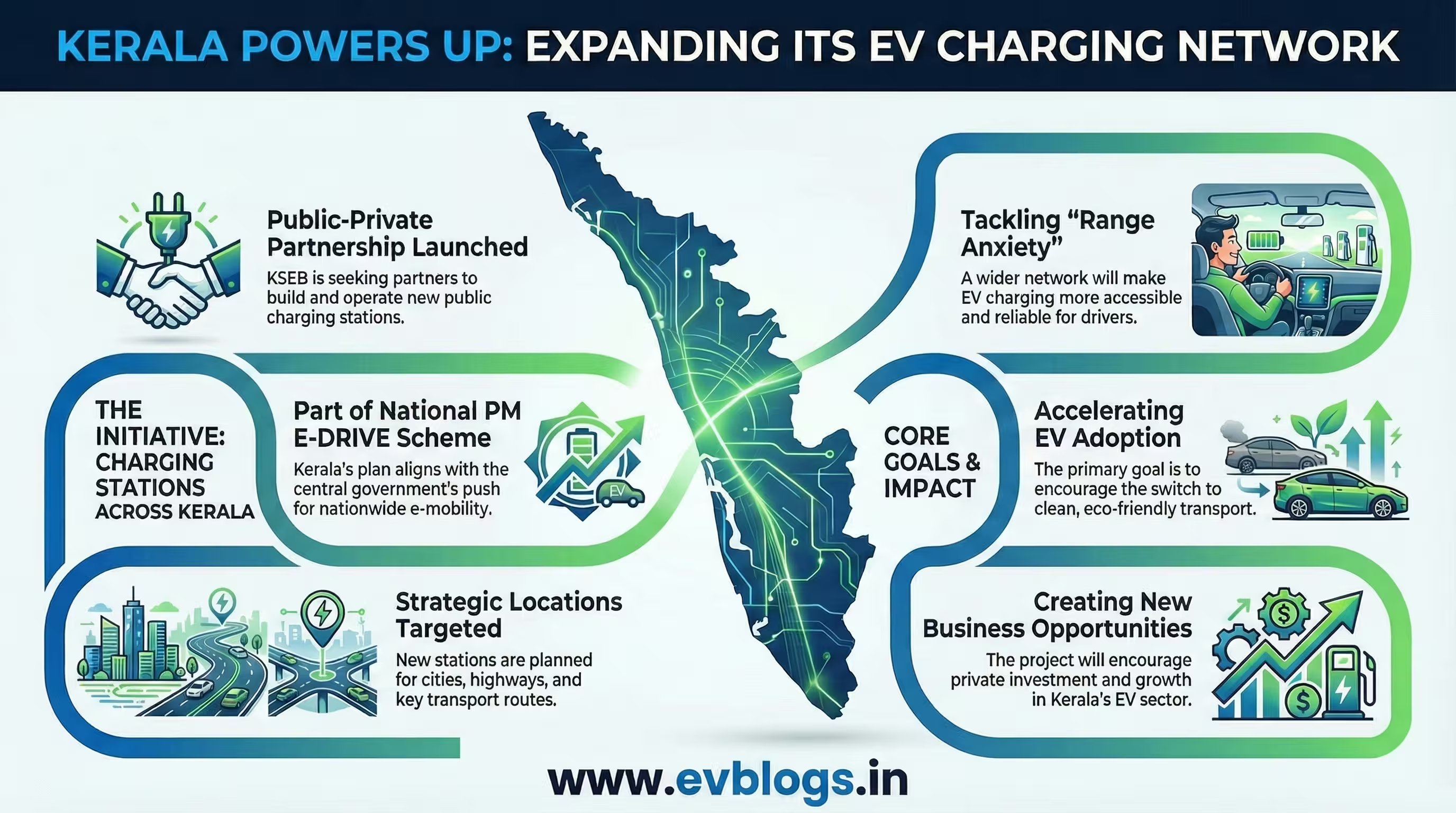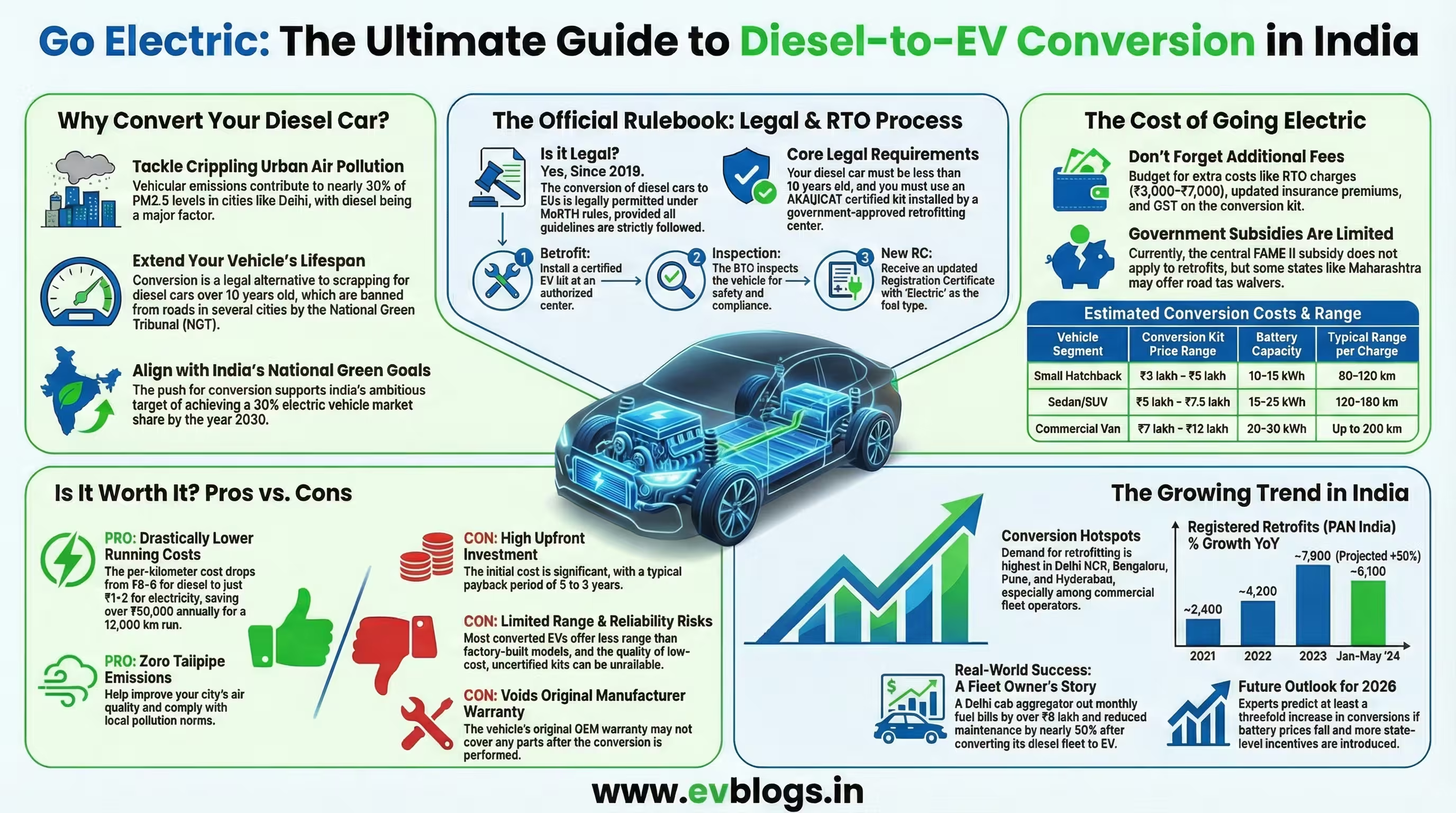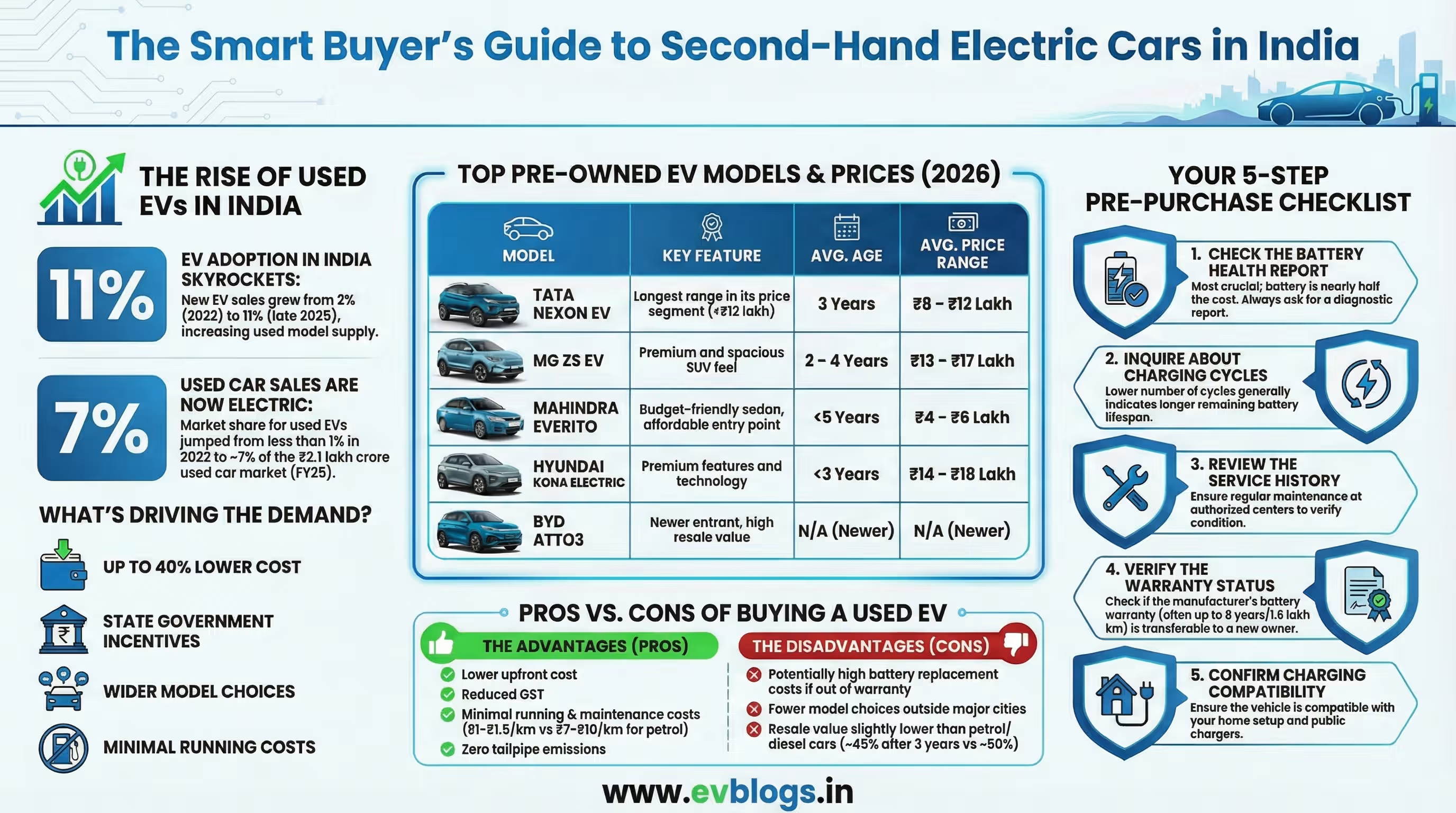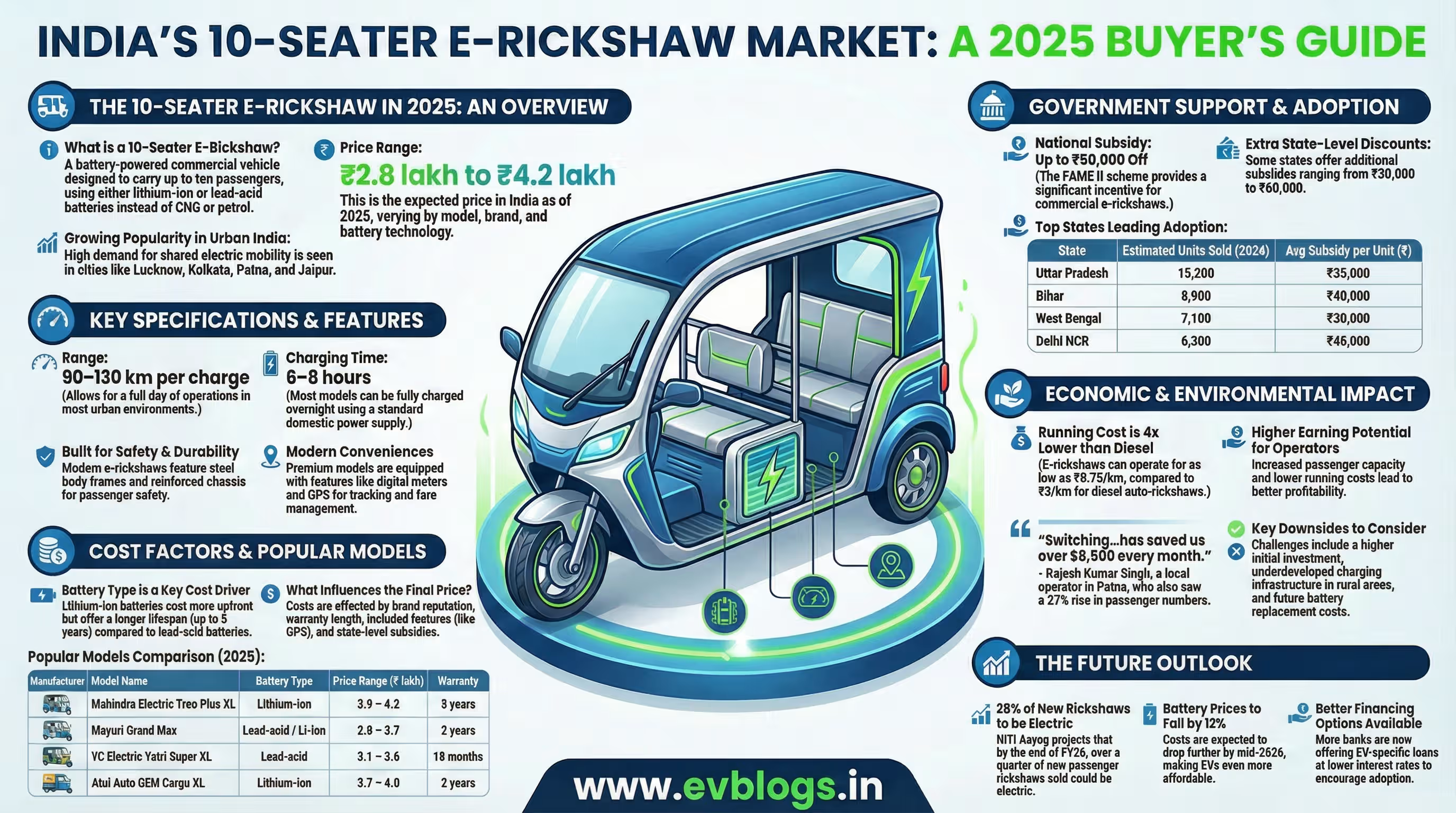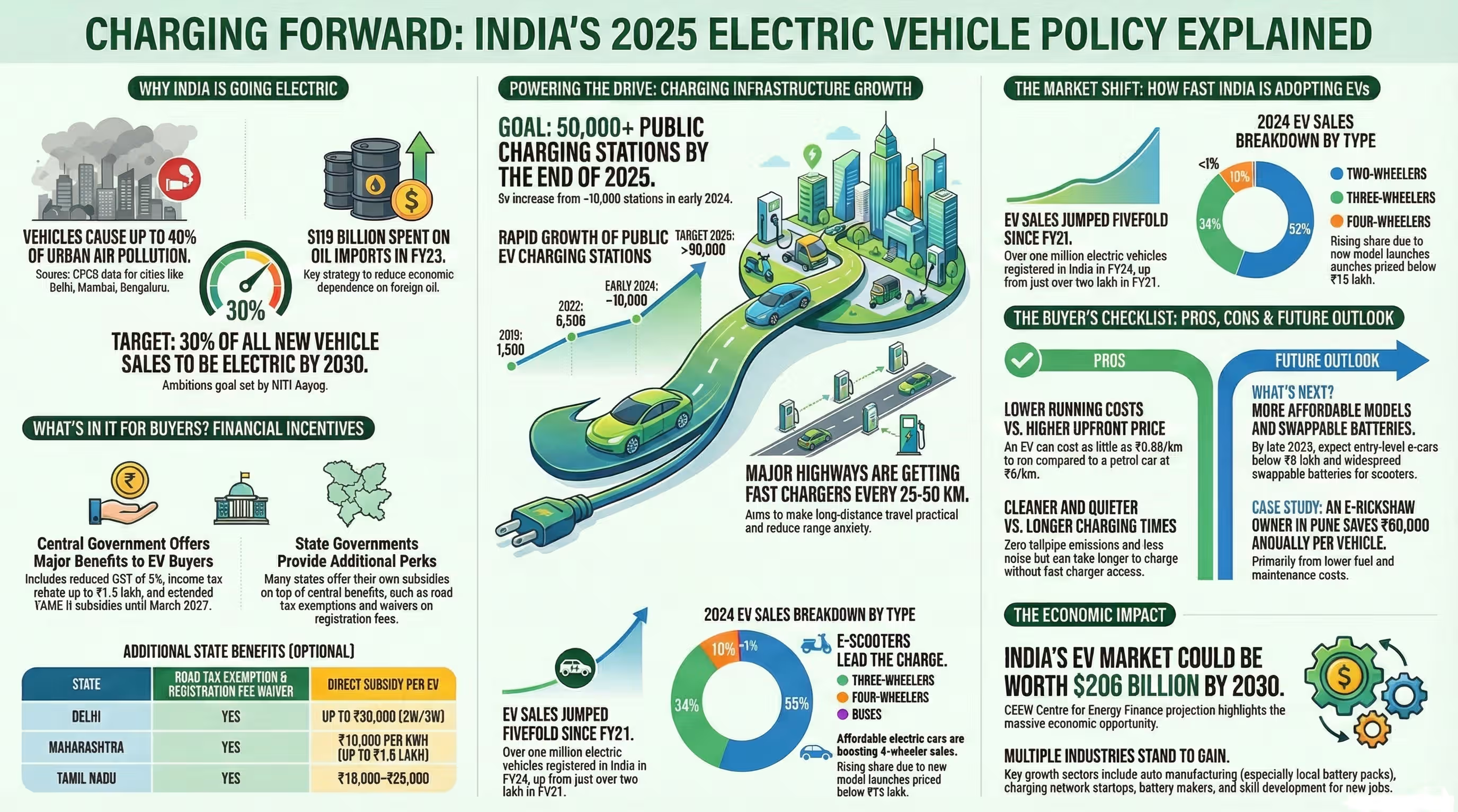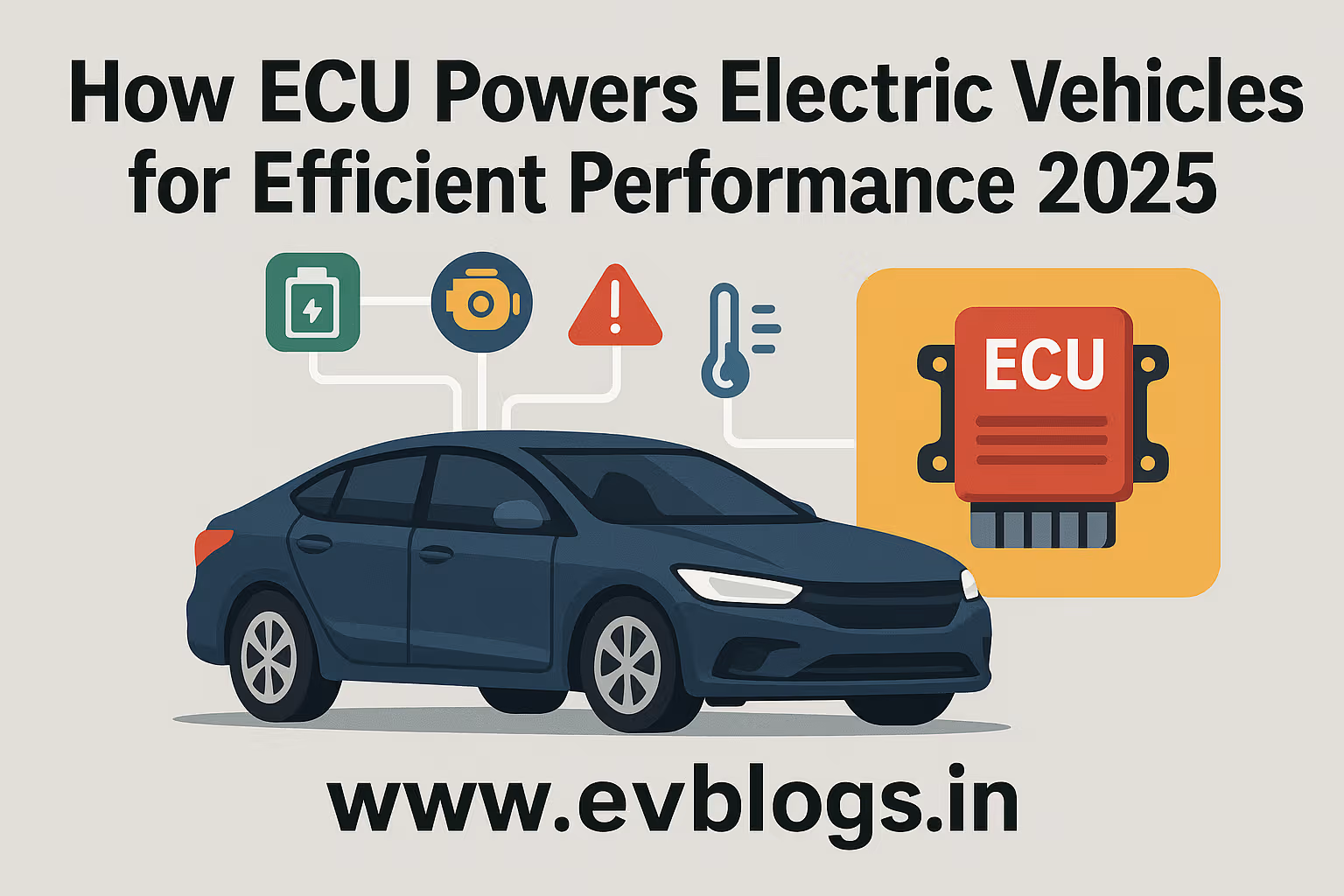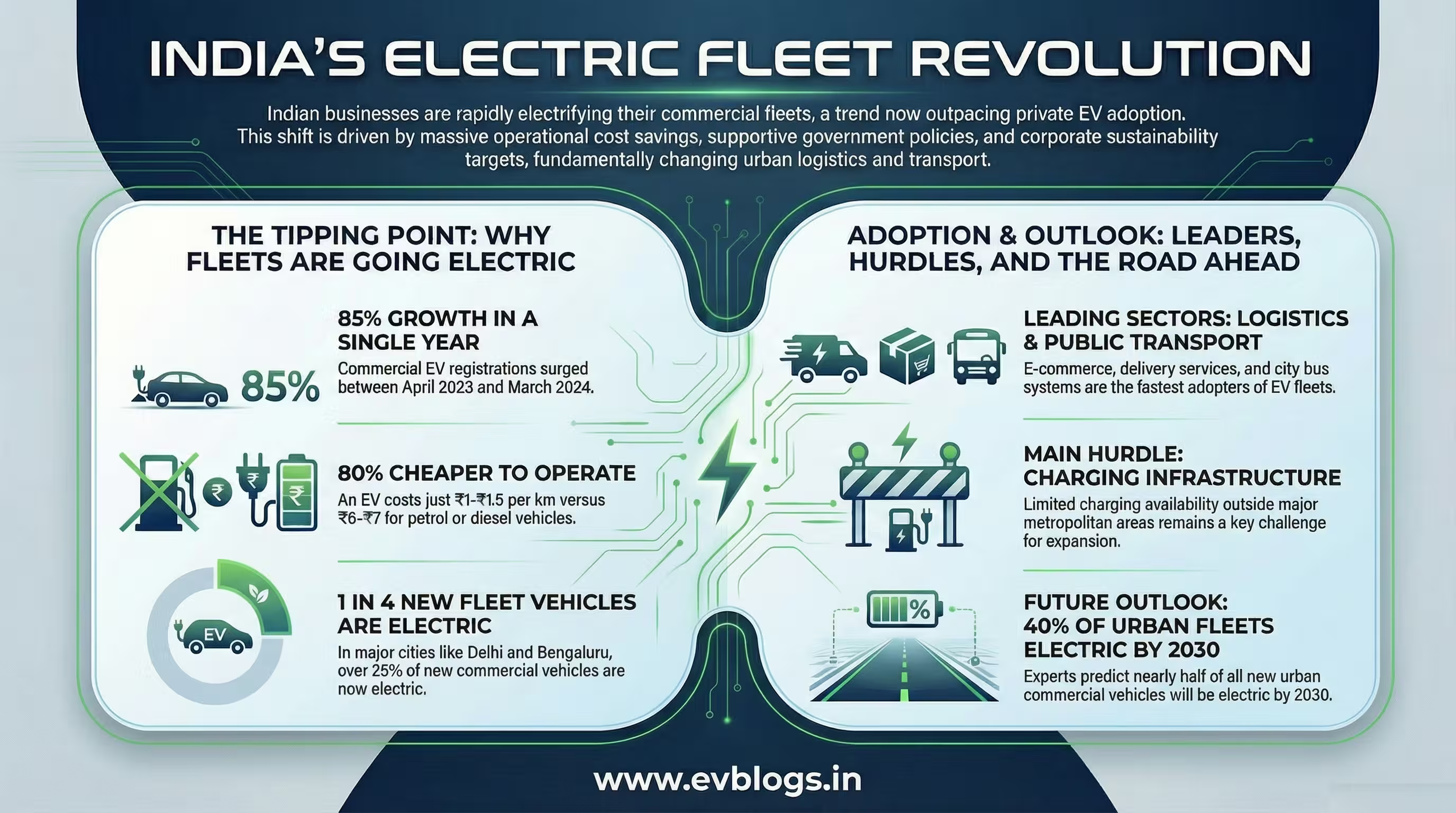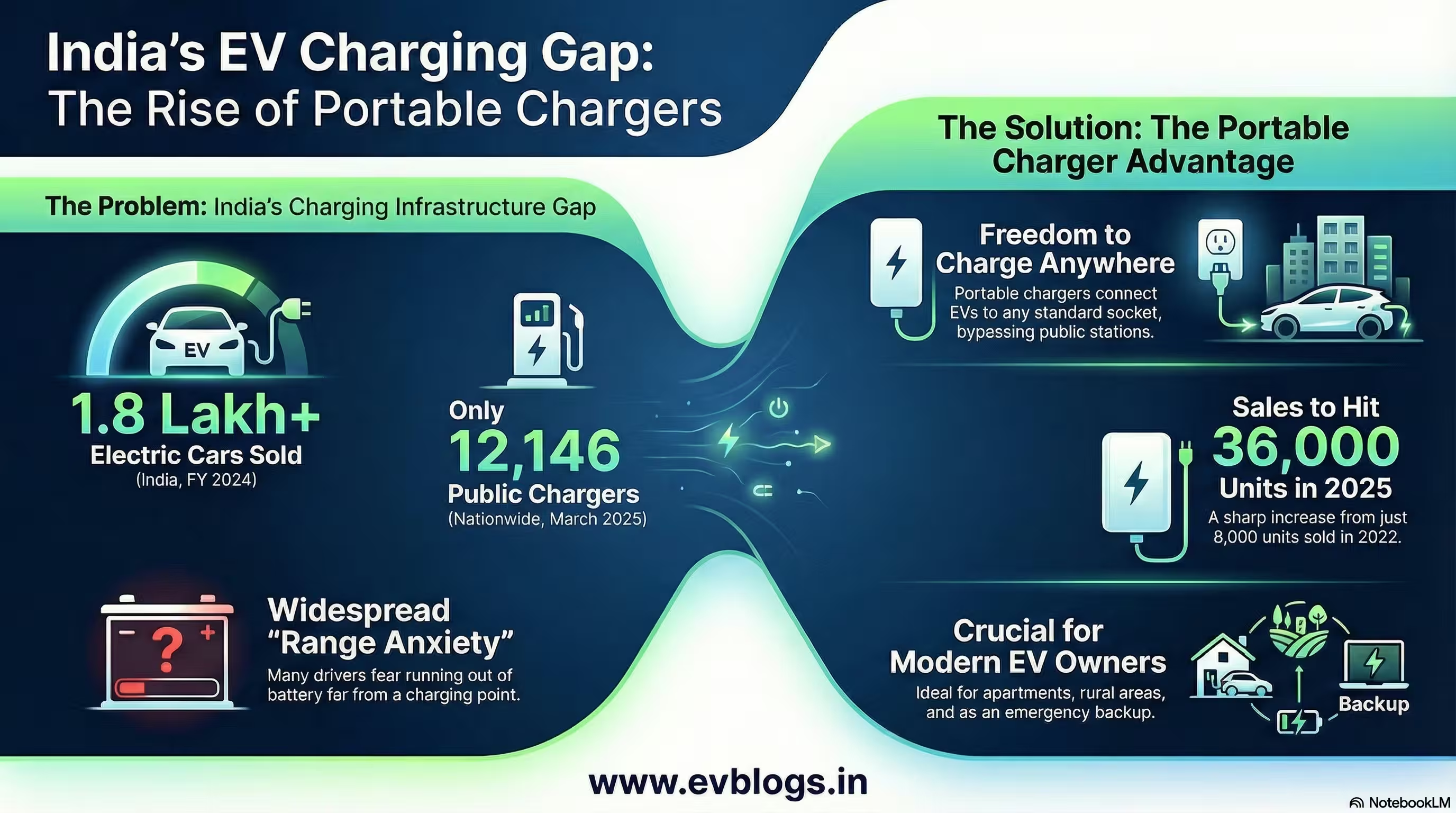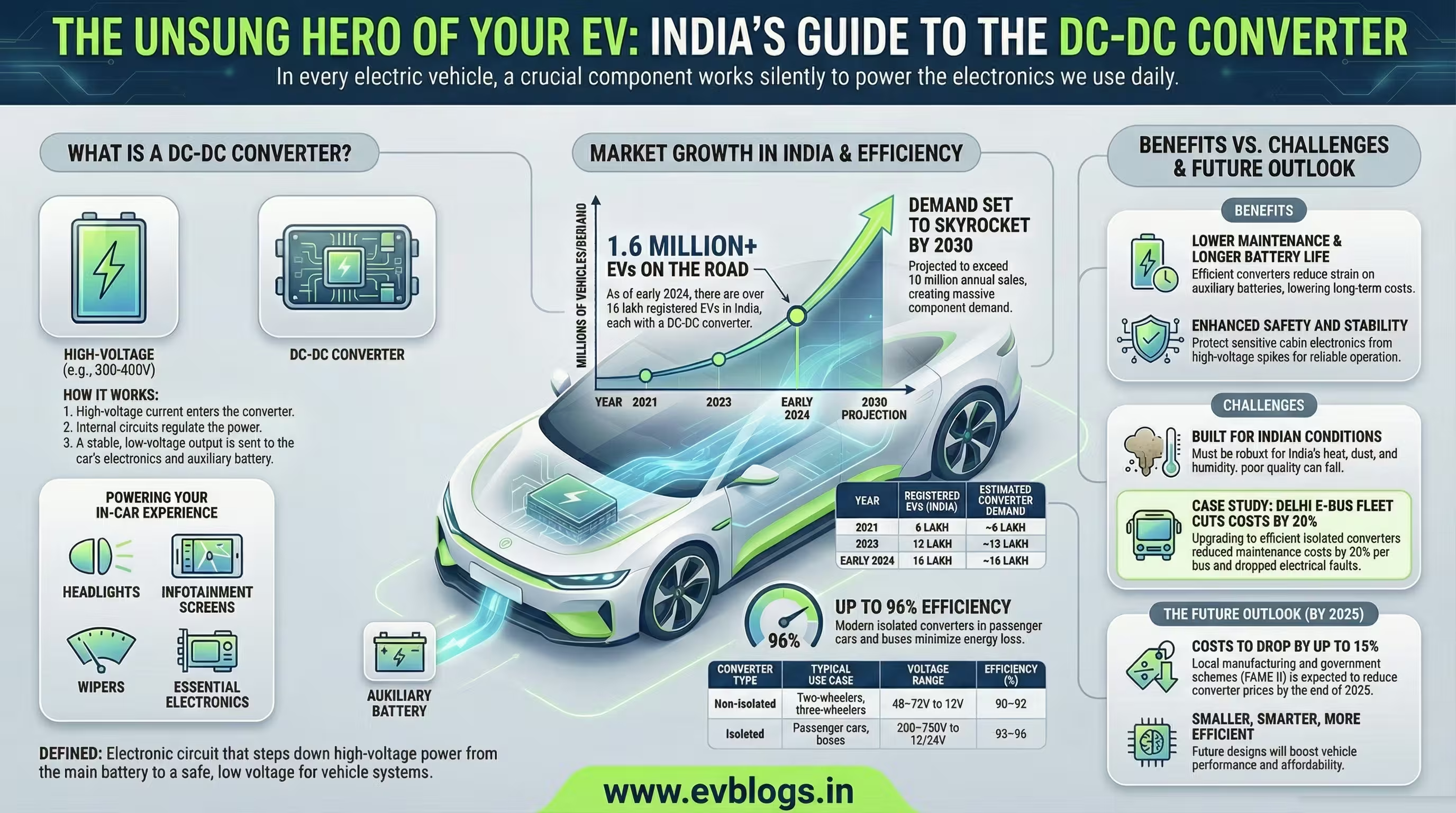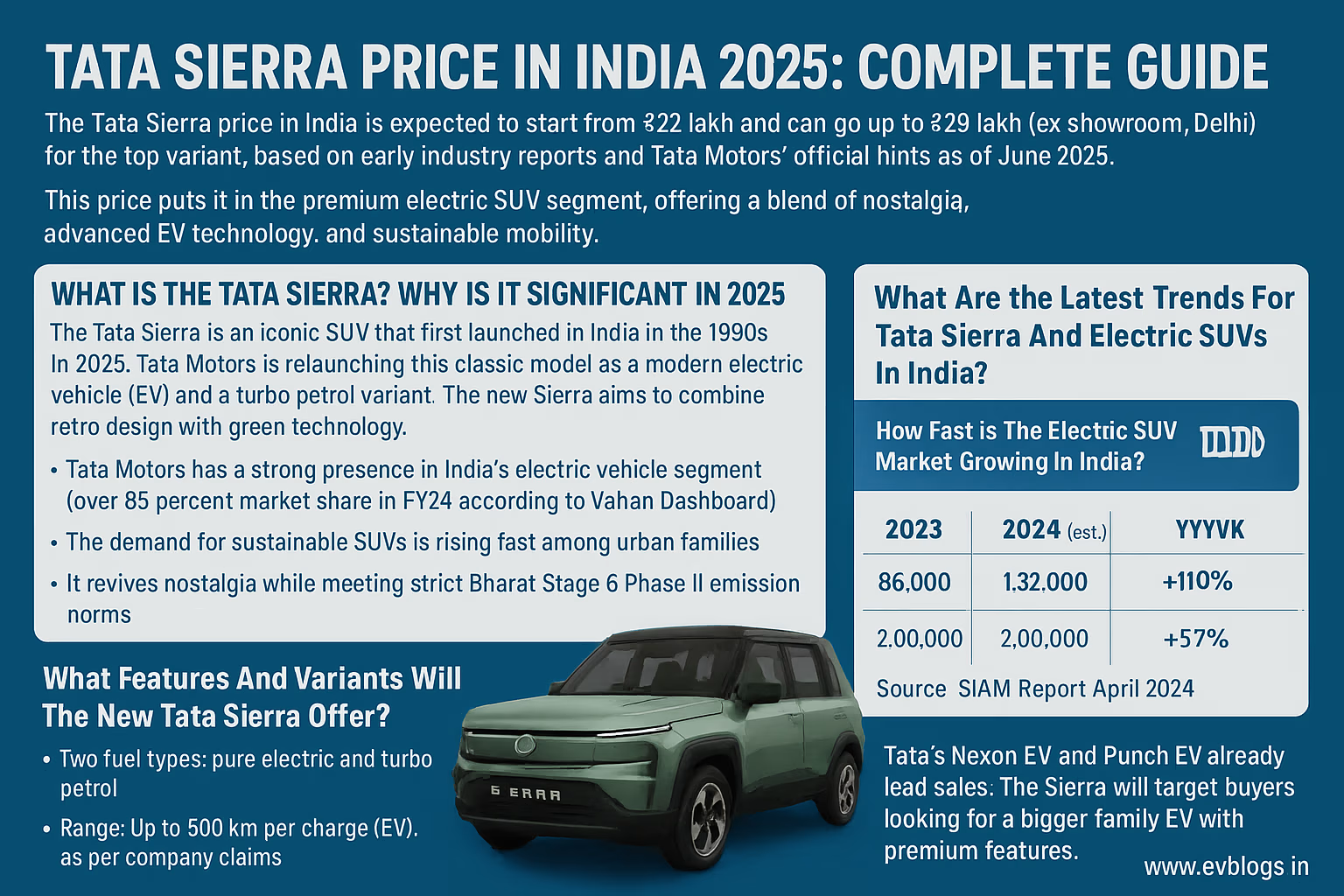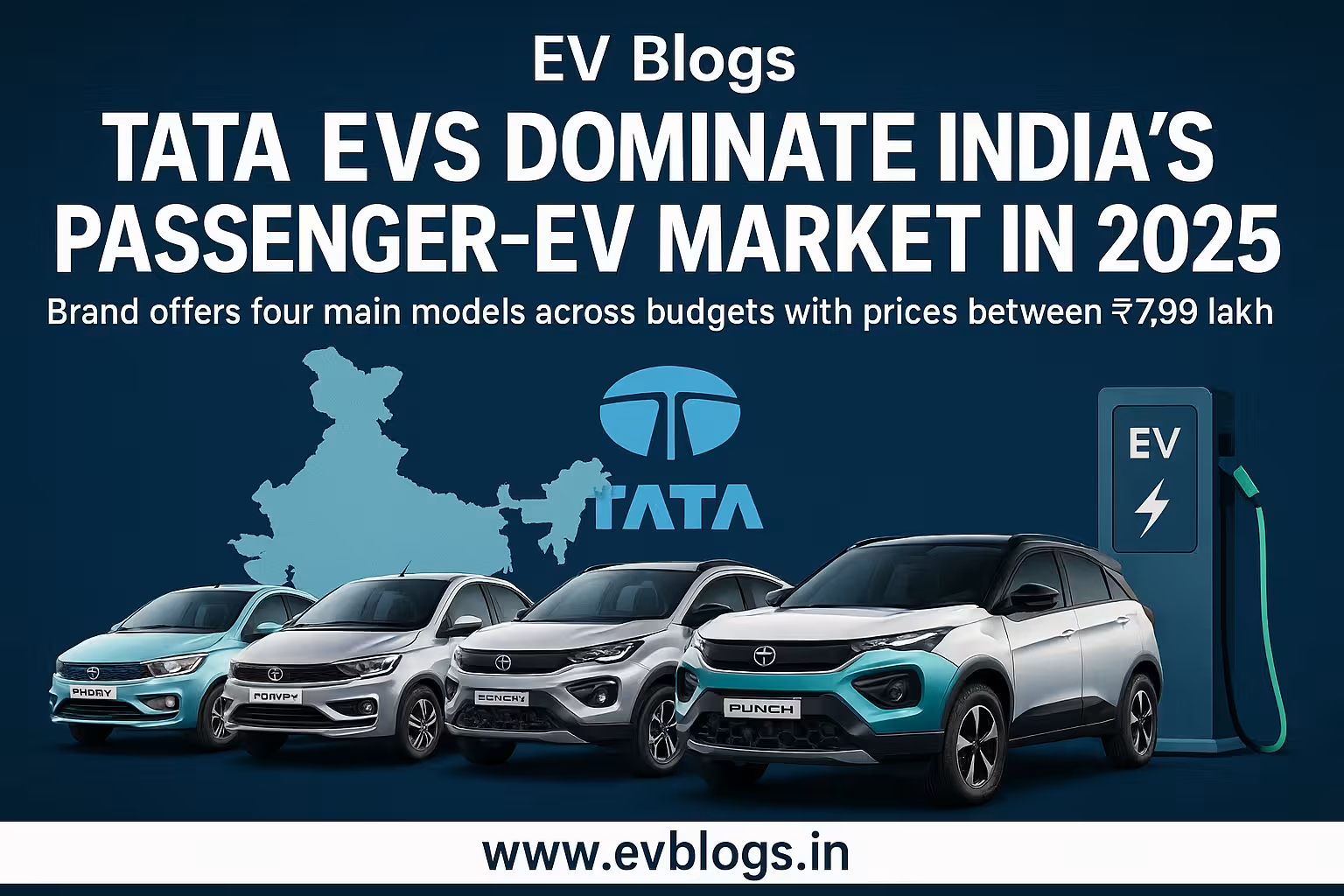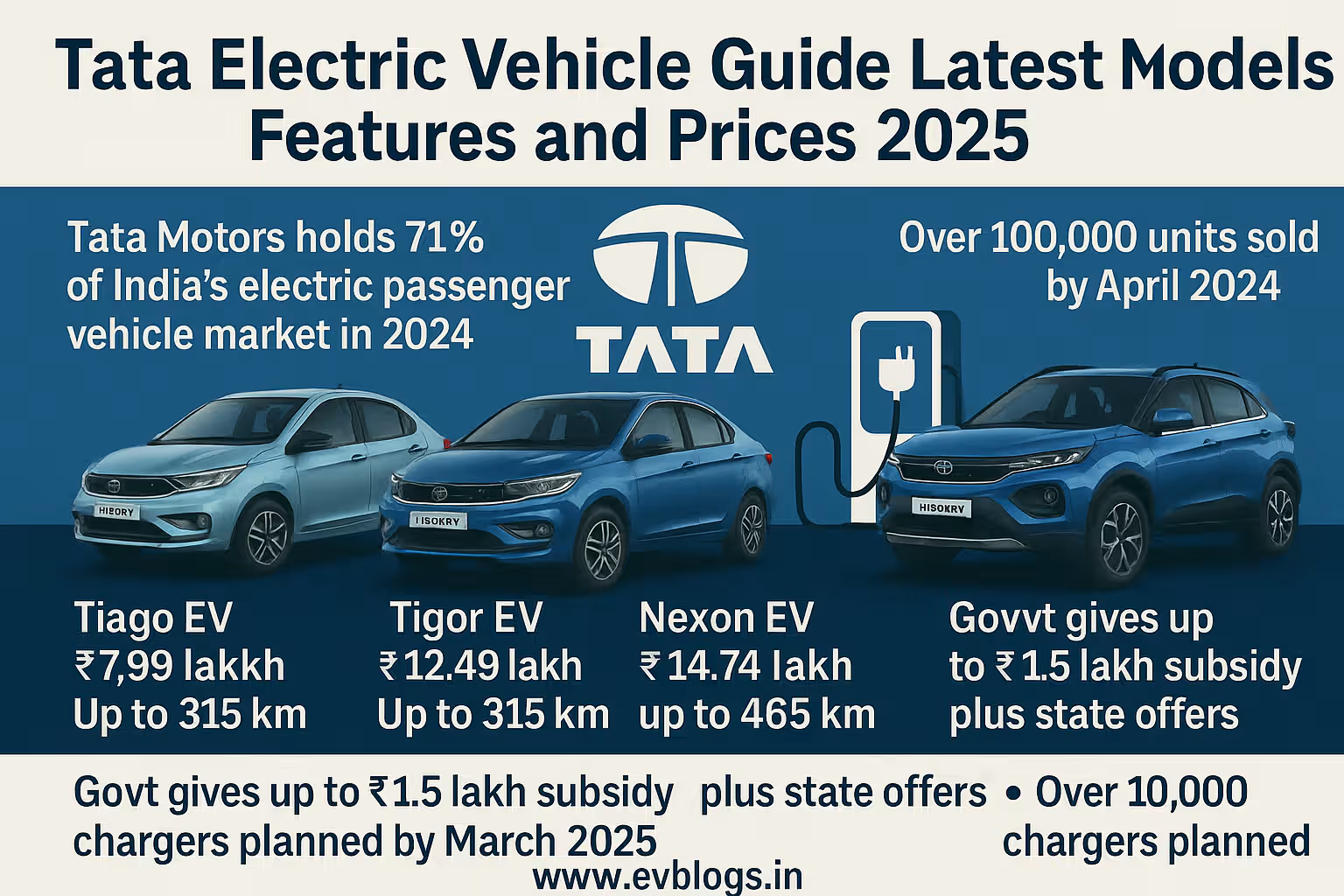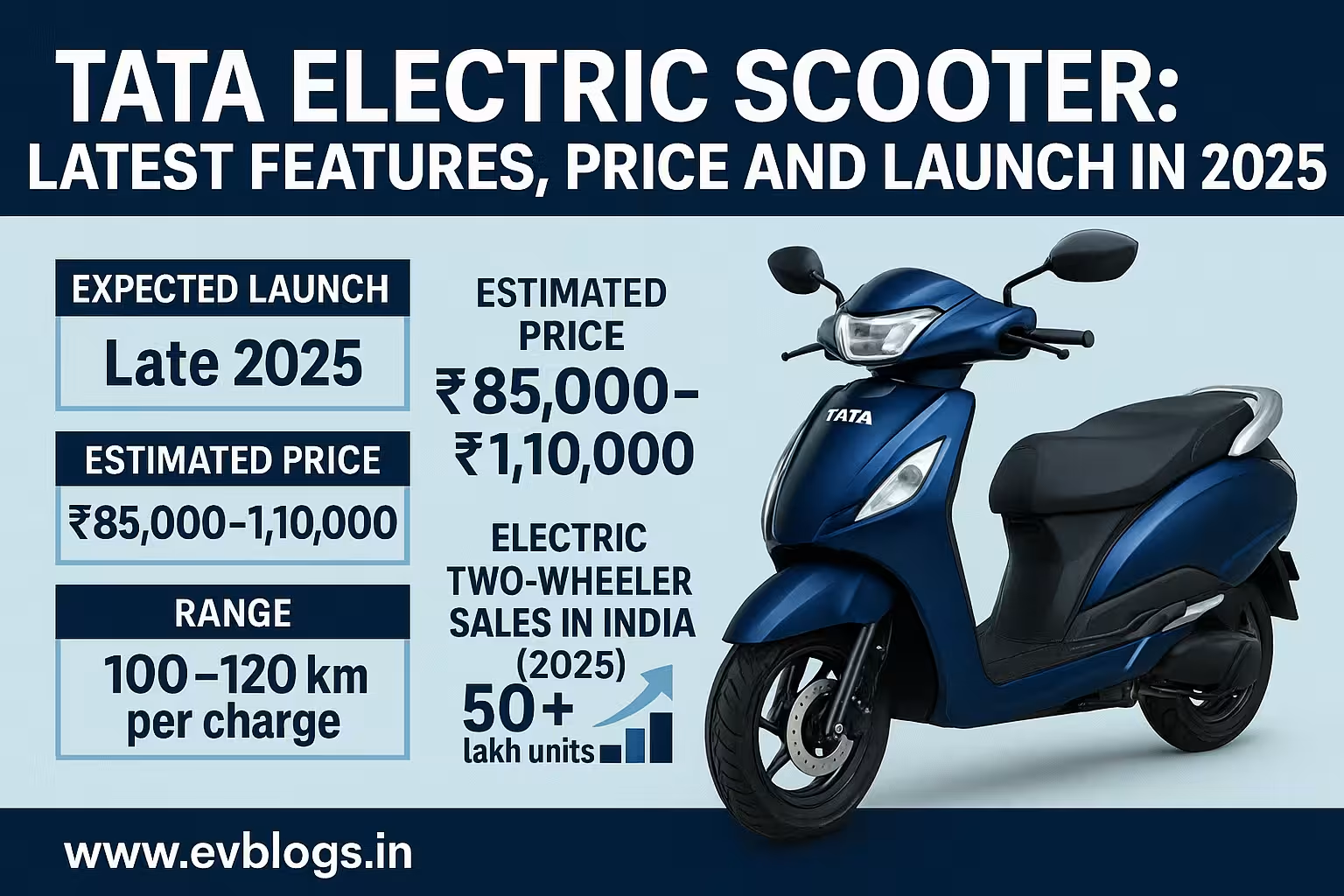Hedhvick Hirav
Hedhvick Hirav is a dedicated EV researcher and editor with over 4 years of experience in India’s growing electric vehicle ecosystem. Their contributions have been recognized in leading sustainability publications and automotive journals.
Summarize & analyze this article with
Choose an AI assistant and open this article directly:
Tip: if the AI doesn’t fetch the page automatically, paste the article URL manually.
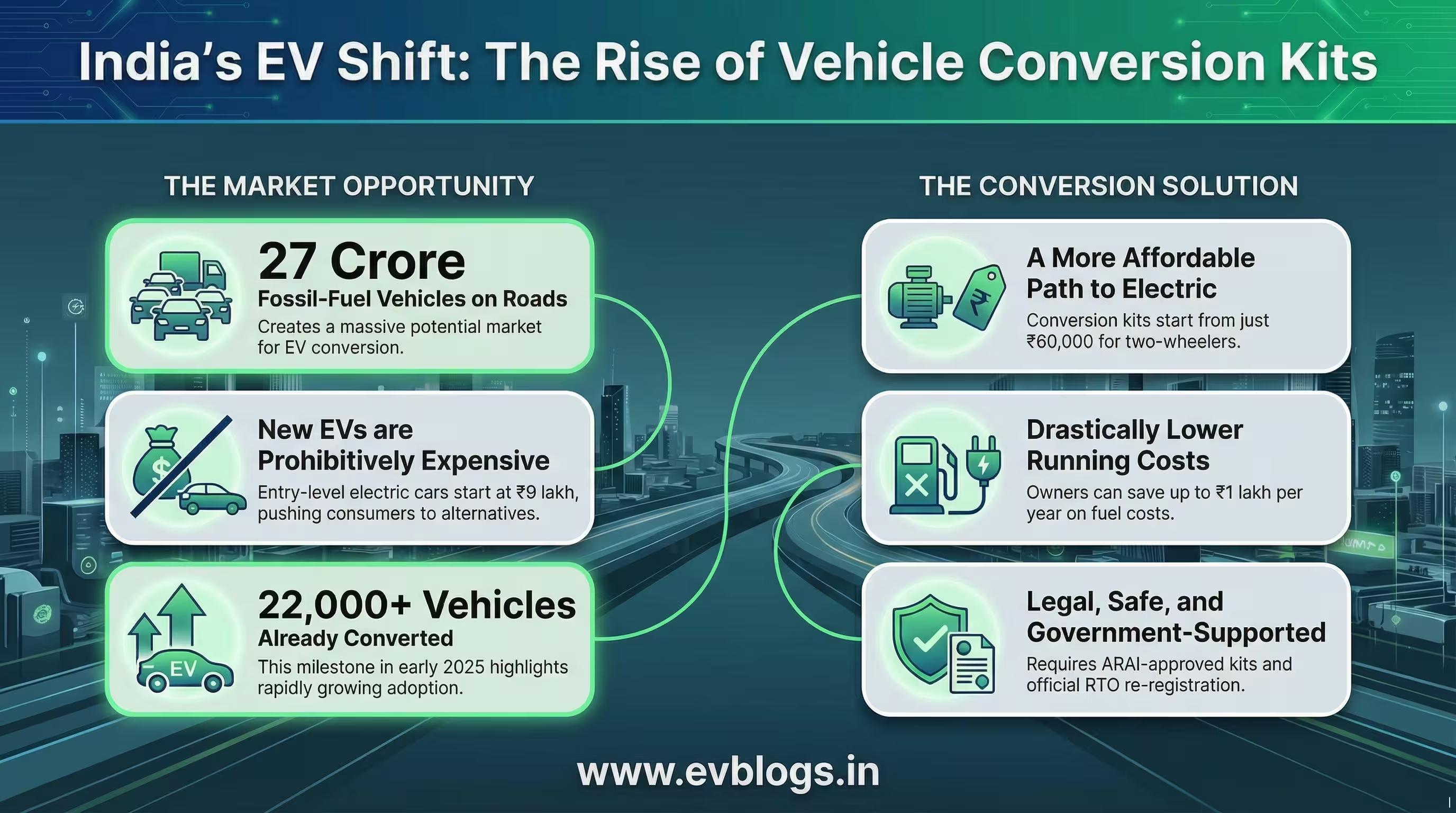
Electric vehicle conversion kit solutions are gaining popularity across India in 2025, as more people look for greener and cost-effective ways to upgrade their petrol or diesel vehicles. These kits let you change your old car or bike into an electric vehicle (EV) without buying a new one. According to the Ministry of Road Transport and Highways, over 22,000 vehicles have been converted using certified EV kits in India as of early 2025, saving owners money and reducing air pollution (MoRTH Annual Report 2024). This article explores what an electric vehicle conversion kit is, why it matters now, how it works, current trends, real costs, pros and cons, adoption rates, and what you should know before making the switch.
What Is an Electric Vehicle Conversion Kit?
An electric vehicle conversion kit is a set of parts that changes a regular petrol or diesel vehicle into a fully electric one. The main parts include:
- Electric motor
- Battery pack
- Controller
- Wiring harness
- Adapter plate for fitting motor
- Instrument cluster (for EV stats)
Certified kits follow safety and emission rules by ARAI (Automotive Research Association of India).
Why Are Conversion Kits Important for India in 2025?
India’s auto sector is moving towards green mobility. With the government pushing for EV adoption under FAME II and State EV Policies, conversion kits make the switch affordable.
Key reasons for their importance:
- Over 27 crore registered vehicles in India are still fossil-fuel based (VAHAN Dashboard 2025).
- Air pollution causes 1.67 million deaths yearly (Lancet Planetary Health Journal).
- High cost of new EVs: Entry-level electric cars start from ₹9 lakh.
- Conversion kit installation costs between ₹60,000 and ₹5 lakh—much cheaper than new EVs.
How Does an Electric Vehicle Conversion Kit Work?
What Are the Steps to Convert My Vehicle?
- Assessment: Check if your car or bike is eligible (usually less than 10 years old).
- Kit Selection: Choose an ARAI approved kit suitable for your vehicle model.
- Installation: Certified garage removes the old engine and fits new electric components.
- RTO Re-registration: Get your RC updated as “Electric” with proper paperwork.
- Testing & Handover: Final safety checks before you take your new EV home.
Where Can I Get It Done?
Look for ARAI certified retrofitters or check official sites like ARAI and local RTO lists.
What Are the Latest Trends & Data in EV Conversion Kits?
Who Is Using These Kits Most in India?
- Major cities like Delhi NCR, Pune, Bengaluru see highest conversions due to local incentives.
- Fleet operators (taxis, delivery services) are converting older cars to save on fuel costs.
- Vintage car owners use kits to preserve their classics with modern tech.
Adoption Statistics Table
| Year | Vehicles Converted | Major Cities | % Growth YoY |
|---|---|---|---|
| 2022 | 7,800 | Delhi, Pune | — |
| 2023 | 13,500 | Mumbai, Bengaluru | +73% |
| 2024 | 18,700 | Hyderabad | +38% |
| 2025* | 22,000+ | Chennai | +17% |
*Source: MoRTH Annual Report 2024; projected data for Jan–May 2025
How Much Does an Electric Vehicle Conversion Kit Cost in India?
What Is the Price Range & Payback Time?
Costs depend on vehicle size and battery type:
Cost Comparison Table
| Vehicle Type | Kit Cost (INR) | Installation Charge (INR) | Avg Battery Range (km) |
|---|---|---|---|
| Two Wheeler | ₹60,000–₹85,000 | ₹7,000–₹12,000 | 60–90 |
| Small Car | ₹1.1L–₹2L | ₹25k–₹35k | 80–120 |
| Sedan/SUV | ₹2.8L–₹5L | ₹40k–₹70k | 100–180 |
*Source: Statista Indian EV Market Report Q1/2025
Payback period is usually under three years due to lower running costs (electricity vs petrol/diesel).
Pros and Cons of EV Conversion Kits
What Are the Benefits?
- Cost Saving: Save up to ₹1 lakh per year on fuel if driving >50 km/day.
- Greener: Cuts tailpipe emissions to zero.
- Extended Vehicle Life: Gives old cars a new lease on life.
- Government Support: Lower registration fees in many states.
What Are the Limitations?
- Initial investment can be high for larger vehicles.
- Limited range compared to factory-made EVs.
- Warranty may not cover converted parts unless done by certified installer.
- Battery replacement after ~6 years adds extra cost.
Real Example: Case Study from Pune
In Pune’s Pimpri-Chinchwad area, a local taxi operator converted his fleet of four Maruti Altos using certified retrofitting kits in mid-2024. His fuel expenses dropped by nearly ₹45,000 per month per car after switching to electric charging at night tariffs. He also received lower road taxes as per Maharashtra’s Green Mobility Policy.
Future Outlook: Will More People Use Conversion Kits by 2030?
The government plans to offer more subsidies for conversions under FAME III from late 2025 (PIB Source). By 2030:
- Over five lakh vehicles could be converted if trends continue.
- Battery prices are expected to fall by another 20 percent by end of decade (IEA World Energy Outlook).
Retrofitting could play a key role in meeting India’s target of having at least thirty percent electric vehicles on roads by 2030.
Quick Recap: Key Stats & Takeaways
- Over twenty two thousand conversions done with certified electric vehicle conversion kit as of May 2025
- Conversions cost much less than buying a new EV—starts from ₹60K for bikes
- Running cost drops up to ninety percent compared to petrol/diesel
- Main users are city dwellers and fleet operators looking to save money
- Govt support likely to grow further post FAME III policy rollout
People Also Ask
Q1: Is it legal to convert my petrol/diesel car into an electric vehicle in India?
Yes; but only with ARAI-approved kits installed at authorized garages and after updating your RC at RTO.
Q2: How long does installation take?
Usually three to seven days depending on vehicle type and garage workload.
Q3: Will my insurance stay valid after conversion?
You must inform your insurer; most major companies now offer special plans for retrofitted EVs.
Q4: Can I convert any car or bike?
Most cars/bikes less than ten years old can be converted if structurally fit; check eligibility with retrofitter.
Q5: How safe are converted electric vehicles?
Kits approved by ARAI follow strict safety standards; always get it done at certified centres.
Q6: Where can I find government guidelines or certified installers?
Visit ARAI Official Website or check State Transport Department portals.
Ready to make your ride greener? Compare certified electric vehicle conversion kit options today—or contact a trusted retrofitter near you for a quote! For more details on subsidies or approved installers visit ARAI or your state RTO portal.


